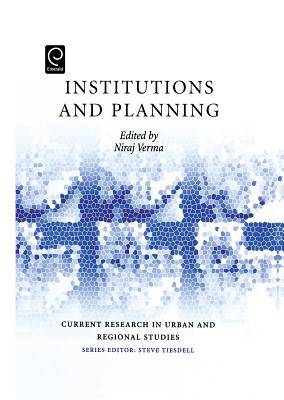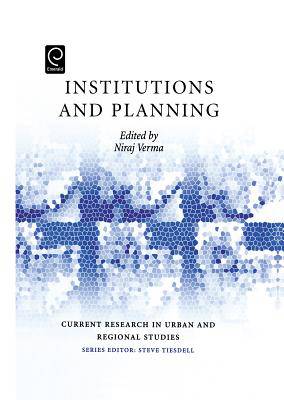
- Afhalen na 1 uur in een winkel met voorraad
- Gratis thuislevering in België vanaf € 30
- Ruim aanbod met 7 miljoen producten
- Afhalen na 1 uur in een winkel met voorraad
- Gratis thuislevering in België vanaf € 30
- Ruim aanbod met 7 miljoen producten
Zoeken
Institutions and Planning
€ 343,45
+ 686 punten
Omschrijving
The chapters in this volume, written by a distinguished group of academics in planning and related fields, revisit the terrain of planning in light of recent developments in the recognition of the importance of institutions in planning. The book is divided into three sections: the first section is concerned with examining the impact of the new institutionalism on the field of planning and on its theory. Chapters include those proposing intellectual justification of planning as a field and a profession. The second section is concerned with how civic traditions and institutions affect the urban realm. The chapters here explore the impact of these concerns on the daily patterns of urban life and particularly on the examination of the role of institutions in making this vitality possible. The final section examines the intellectual meaning of public-private partnerships that shed light on the role of planning in this new environment. It is a volume in the current research in urban and regional studies series. Its chapters are written by top tier academics. It revisits planning based on recent developments. It is broken up into three parts: Planning Perspectives on Institutions, Institutional Design, and Applying Institutional Ideas.
Specificaties
Betrokkenen
- Uitgeverij:
Inhoud
- Aantal bladzijden:
- 248
- Taal:
- Engels
- Reeks:
- Reeksnummer:
- nr. 2
Eigenschappen
- Productcode (EAN):
- 9780080449319
- Verschijningsdatum:
- 1/12/2006
- Uitvoering:
- Hardcover
- Formaat:
- Ongenaaid / garenloos gebonden
- Afmetingen:
- 174 mm x 243 mm
- Gewicht:
- 544 g

Alleen bij Standaard Boekhandel
+ 686 punten op je klantenkaart van Standaard Boekhandel
Beoordelingen
We publiceren alleen reviews die voldoen aan de voorwaarden voor reviews. Bekijk onze voorwaarden voor reviews.










